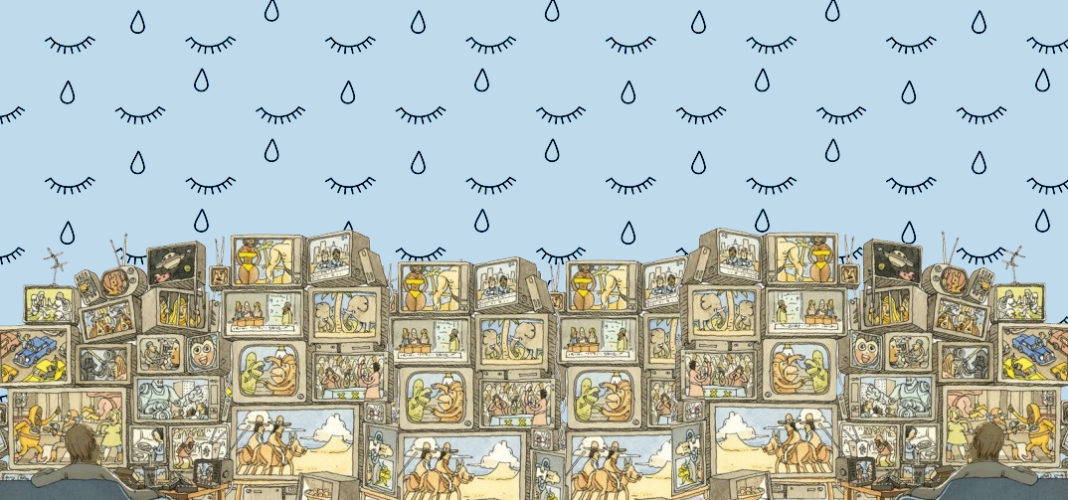If getting into bed for a marathon session of House of Cards sounds like the perfect way to spend a Saturday, think again. It may seem like harmless fun but research suggests otherwise. A new study links binge-watching TV with depression, loneliness and an inability to control one’s behavior. The binge watchers in the study were unable to tear themselves away from the show even though they had other things to do.
Although the study does not conclude that binge-watching television causes depression, it suggests a connection. Spending eight hours watching episode after episode can leave you feeling empty and depleted afterwards. Guilt is a key factor. As one patient said to me after a weekend of binge-watching Orange is the New Black:
I wasted so much time and even though I did nothing, I was exhausted and drained afterwards. All I could think about on Sunday night was all the things I didn’t do like going to the gym or running errands.
None of this is new. Americans have always felt guilty about watching too much television. In 1961, the Federal Communications Commission chairman famously criticized television for being a “vast wasteland.”
I remember my mother telling me television would make my eyes square if I didn’t stop watching cartoons on Saturday mornings. Teachers warned of television polluting my brains. No more Love Boat or Fantasy Island, they warned.
Watching television has always been tempting but what has changed today is the how easy it is to get sucked in:
Consider the autoplay function on Netflix. When an episode ends, there’s a 15-second pause and then the next episode in the season starts automatically. There’s no choice in this behavior, which means it’s up to the viewer to regulate themselves and turn off the TV.
My advice: Don’t leave your viewing be open-ended. Decide beforehand how many episodes you want to watch. I recommend no more than three. If the show is that good, you will have something to look forward to next weekend.
I wish you all the best,
Dr. Samantha Boardman






